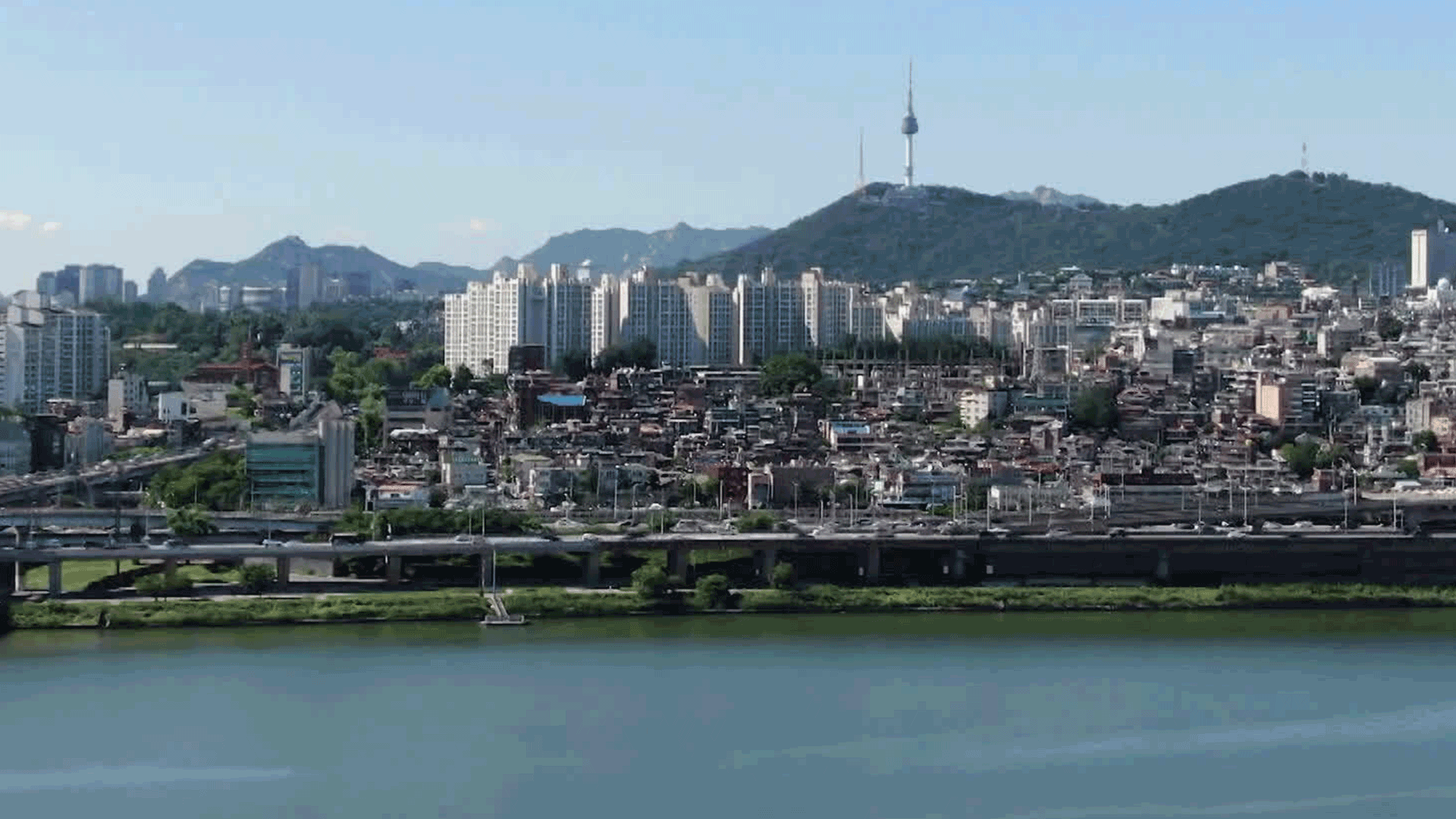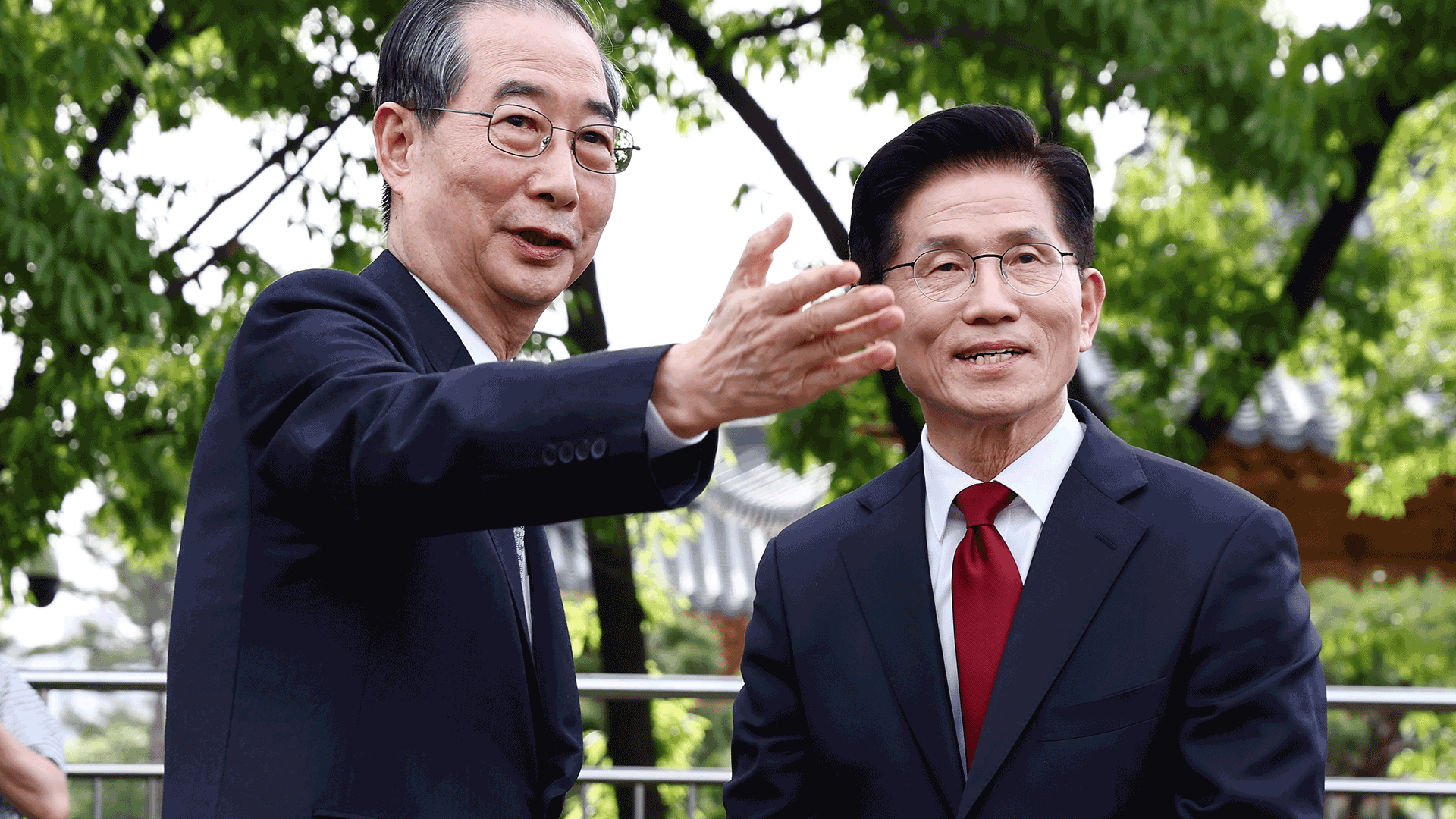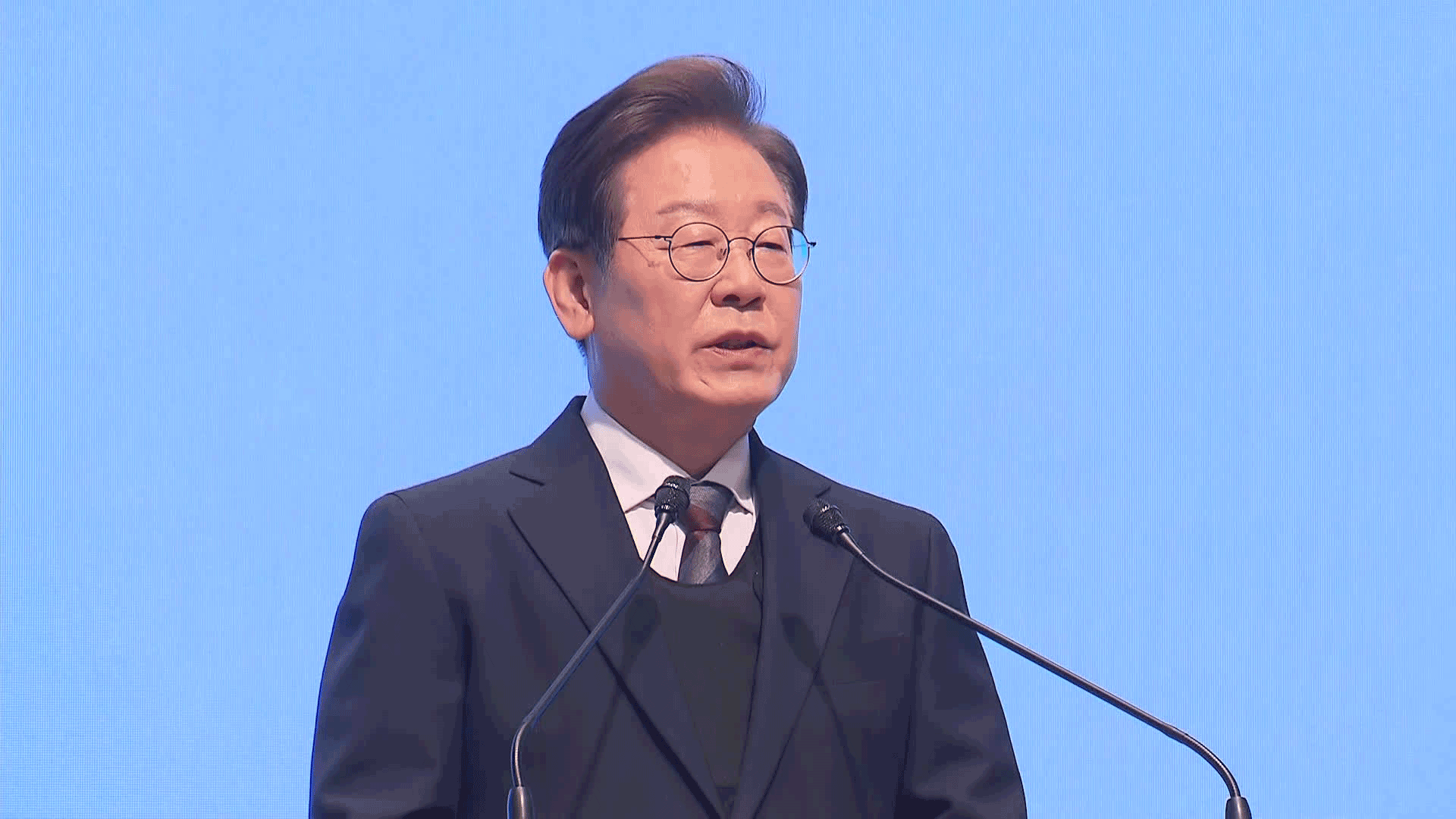[Anchor]
Due to the effects of martial law and tariffs, the growth rate for South Korea has recently declined.
The medium to long-term outlook is also bleak.
If this continues, it is projected that the potential growth rate could be 0% starting around 2040, 15 years from now.
This is a report by Choi In-young.
[Report]
This is a robot that gained attention during this year's Chinese New Year performances.
It is skilled at squatting and even getting up from a lying position.
The price of the entry-level model has been reduced to around 20 million won.
[Huang Jiawei/Marketing Planner at 'Unitree' in China: "We do all the final assembly and shipping ourselves."]
Founded 9 years ago, 'Unitree' has a corporate value of over 1.6 trillion won.
There are about 70 such AI 'unicorn' companies in China, over 120 in the United States, and 1 in South Korea.
The biggest problem is productivity.
Total factor productivity.
This concept encompasses intangible growth factors such as investment, technology, and innovation, excluding 'labor' and 'capital', that is, people and money.
From 2001 to 2010, total factor productivity contributed 40% to the growth rate, but in the last 10 years, its contribution has dropped to 24%.
Until recently, the decline in productivity was buffered by increasing labor input, but due to rapid aging, that is no longer feasible.
[Kim Ji-yeon/KDI Researcher: "The decline in economic growth rate is mainly due to the slowdown in total factor productivity growth, and recently, the increase in labor input has also slowed down, further lowering the economic growth rate."]
Forecasts from three years ago suggested that the potential growth rate would be maintained at the 1.9% level until 2030, but this time it has been lowered to 1.5%, and the forecast for the potential growth rate in the 2040s has dropped from 0.7% to 0.1%.
This means that even if South Korea mobilizes all its labor, capital, and technology in the 2040s, it may barely achieve 0% growth.
This is KBS News, Choi In-young.
Due to the effects of martial law and tariffs, the growth rate for South Korea has recently declined.
The medium to long-term outlook is also bleak.
If this continues, it is projected that the potential growth rate could be 0% starting around 2040, 15 years from now.
This is a report by Choi In-young.
[Report]
This is a robot that gained attention during this year's Chinese New Year performances.
It is skilled at squatting and even getting up from a lying position.
The price of the entry-level model has been reduced to around 20 million won.
[Huang Jiawei/Marketing Planner at 'Unitree' in China: "We do all the final assembly and shipping ourselves."]
Founded 9 years ago, 'Unitree' has a corporate value of over 1.6 trillion won.
There are about 70 such AI 'unicorn' companies in China, over 120 in the United States, and 1 in South Korea.
The biggest problem is productivity.
Total factor productivity.
This concept encompasses intangible growth factors such as investment, technology, and innovation, excluding 'labor' and 'capital', that is, people and money.
From 2001 to 2010, total factor productivity contributed 40% to the growth rate, but in the last 10 years, its contribution has dropped to 24%.
Until recently, the decline in productivity was buffered by increasing labor input, but due to rapid aging, that is no longer feasible.
[Kim Ji-yeon/KDI Researcher: "The decline in economic growth rate is mainly due to the slowdown in total factor productivity growth, and recently, the increase in labor input has also slowed down, further lowering the economic growth rate."]
Forecasts from three years ago suggested that the potential growth rate would be maintained at the 1.9% level until 2030, but this time it has been lowered to 1.5%, and the forecast for the potential growth rate in the 2040s has dropped from 0.7% to 0.1%.
This means that even if South Korea mobilizes all its labor, capital, and technology in the 2040s, it may barely achieve 0% growth.
This is KBS News, Choi In-young.
■ 제보하기
▷ 카카오톡 : 'KBS제보' 검색, 채널 추가
▷ 전화 : 02-781-1234, 4444
▷ 이메일 : kbs1234@kbs.co.kr
▷ 유튜브, 네이버, 카카오에서도 KBS뉴스를 구독해주세요!
- Projected 0% growth by 2040s
-
- 입력 2025-05-09 01:29:45

[Anchor]
Due to the effects of martial law and tariffs, the growth rate for South Korea has recently declined.
The medium to long-term outlook is also bleak.
If this continues, it is projected that the potential growth rate could be 0% starting around 2040, 15 years from now.
This is a report by Choi In-young.
[Report]
This is a robot that gained attention during this year's Chinese New Year performances.
It is skilled at squatting and even getting up from a lying position.
The price of the entry-level model has been reduced to around 20 million won.
[Huang Jiawei/Marketing Planner at 'Unitree' in China: "We do all the final assembly and shipping ourselves."]
Founded 9 years ago, 'Unitree' has a corporate value of over 1.6 trillion won.
There are about 70 such AI 'unicorn' companies in China, over 120 in the United States, and 1 in South Korea.
The biggest problem is productivity.
Total factor productivity.
This concept encompasses intangible growth factors such as investment, technology, and innovation, excluding 'labor' and 'capital', that is, people and money.
From 2001 to 2010, total factor productivity contributed 40% to the growth rate, but in the last 10 years, its contribution has dropped to 24%.
Until recently, the decline in productivity was buffered by increasing labor input, but due to rapid aging, that is no longer feasible.
[Kim Ji-yeon/KDI Researcher: "The decline in economic growth rate is mainly due to the slowdown in total factor productivity growth, and recently, the increase in labor input has also slowed down, further lowering the economic growth rate."]
Forecasts from three years ago suggested that the potential growth rate would be maintained at the 1.9% level until 2030, but this time it has been lowered to 1.5%, and the forecast for the potential growth rate in the 2040s has dropped from 0.7% to 0.1%.
This means that even if South Korea mobilizes all its labor, capital, and technology in the 2040s, it may barely achieve 0% growth.
This is KBS News, Choi In-young.
Due to the effects of martial law and tariffs, the growth rate for South Korea has recently declined.
The medium to long-term outlook is also bleak.
If this continues, it is projected that the potential growth rate could be 0% starting around 2040, 15 years from now.
This is a report by Choi In-young.
[Report]
This is a robot that gained attention during this year's Chinese New Year performances.
It is skilled at squatting and even getting up from a lying position.
The price of the entry-level model has been reduced to around 20 million won.
[Huang Jiawei/Marketing Planner at 'Unitree' in China: "We do all the final assembly and shipping ourselves."]
Founded 9 years ago, 'Unitree' has a corporate value of over 1.6 trillion won.
There are about 70 such AI 'unicorn' companies in China, over 120 in the United States, and 1 in South Korea.
The biggest problem is productivity.
Total factor productivity.
This concept encompasses intangible growth factors such as investment, technology, and innovation, excluding 'labor' and 'capital', that is, people and money.
From 2001 to 2010, total factor productivity contributed 40% to the growth rate, but in the last 10 years, its contribution has dropped to 24%.
Until recently, the decline in productivity was buffered by increasing labor input, but due to rapid aging, that is no longer feasible.
[Kim Ji-yeon/KDI Researcher: "The decline in economic growth rate is mainly due to the slowdown in total factor productivity growth, and recently, the increase in labor input has also slowed down, further lowering the economic growth rate."]
Forecasts from three years ago suggested that the potential growth rate would be maintained at the 1.9% level until 2030, but this time it has been lowered to 1.5%, and the forecast for the potential growth rate in the 2040s has dropped from 0.7% to 0.1%.
This means that even if South Korea mobilizes all its labor, capital, and technology in the 2040s, it may barely achieve 0% growth.
This is KBS News, Choi In-young.
-
-

최인영 기자 inyoung@kbs.co.kr
최인영 기자의 기사 모음
-
이 기사가 좋으셨다면
-
좋아요
0
-
응원해요
0
-
후속 원해요
0














이 기사에 대한 의견을 남겨주세요.